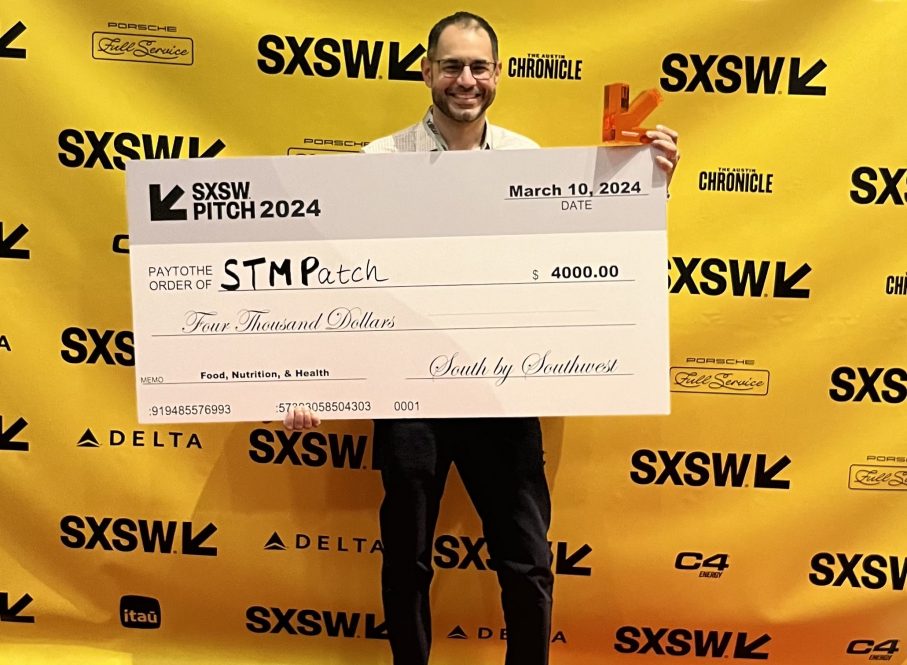In a sea of startups pitching AI inventions, UConn entrepreneur, Jasdeep Singh ’21 MBA, spotted a more valuable way to tell his company’s story about microneedles.
His strategy: use a thoughtful narrative to humanize an abstract problem.
With just a three-minute pitch that can be viewed here, Singh’s company, STMPatch, won the 15th Annual SXSW Festival’s Food, Nutrition, and Health category, beating nearly 1,000 applicants and 45 finalists. The event was held March 9-10 at the SXSW 2024 Conference & Festivals in Austin, Texas.
“This year’s participating companies represent the most cutting-edge technologies from around the world, with the highest caliber of applicants since SXSW Pitch’s beginning,” according to the SXSW announcement. “To date, 647 companies have participated in SXSW Pitch, with over 93% receiving funding and acquisitions in excess of almost $23.2 billion.”
STMPatch is a microneedle and drug development business that has the potential to revolutionize access to lifesaving pharmaceutical products in animals and humans. The technology supports most types of vaccines and therapeutics, including large molecules and any compound that benefits from multiple longitudinal dosing. The business launched in 2023 with support from UConn’s Technology Commercialization Services Department.
“Winning this pitch was a testament to our ability to connect the importance of our product to everyone’s existence,” Singh says. “Storytelling can have a beginning, an arc, and it can also mean just putting context to your answer. The key is to make the tech understandable, which is why using lay language is so important.”
Singh notes his company was the only one at SXSW that mentioned animal health. He also believes STMPatch’s “ability to help everyone in the supply chain” proved to be an advantage, particularly since so many other startups were pitching AI ideas that could replace humans.
“Our company’s long-term goal is human health. We were the only ones to not only talk about animal health, but to connect animal health to food and illnesses that move across species,” Singh says.
It was this innate ability to help judges understand the bigger picture impact that ultimately helped Singh land the winning pitch.
In about three years, he says his goal is to pivot his company from animals to humans. In the meantime, he plans to focus on market testing and scaling market validity.
“I am so passionate about our product and mission that each and every opportunity to speak about our company motivates me even more to push forward,” he notes. “This was one of our biggest stages and I am deeply moved by the panel’s belief in the ‘what’ and ‘why’ we are working so hard to improve health worldwide.”



